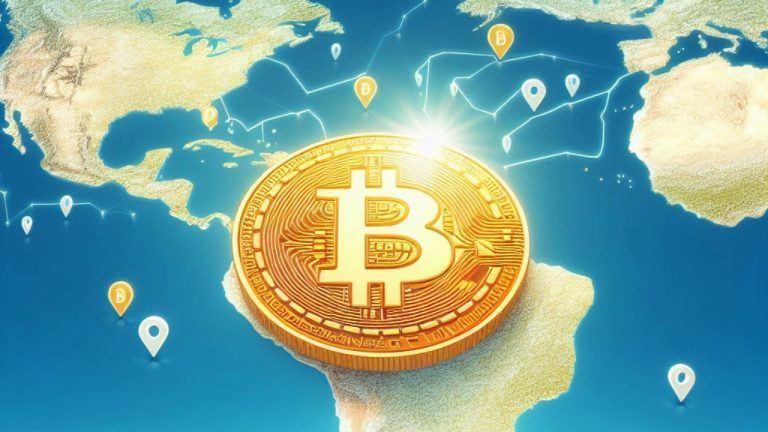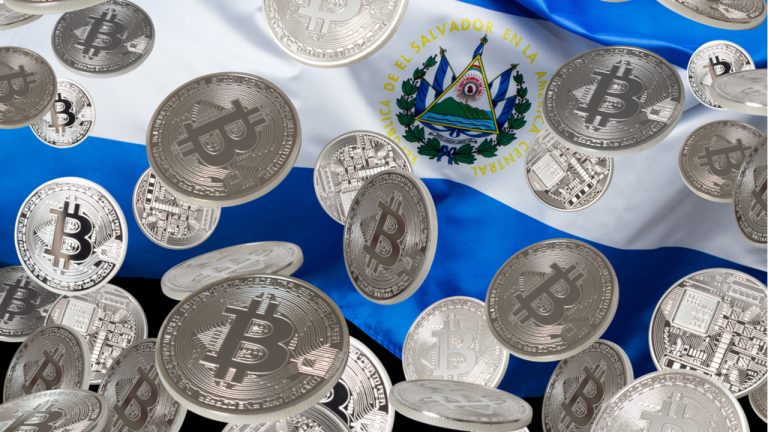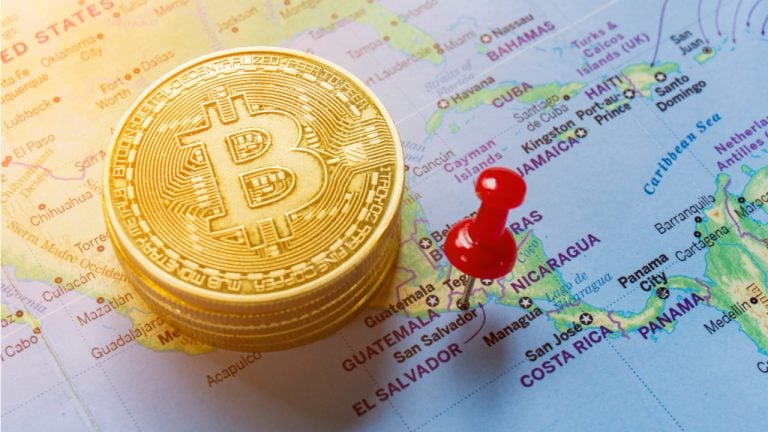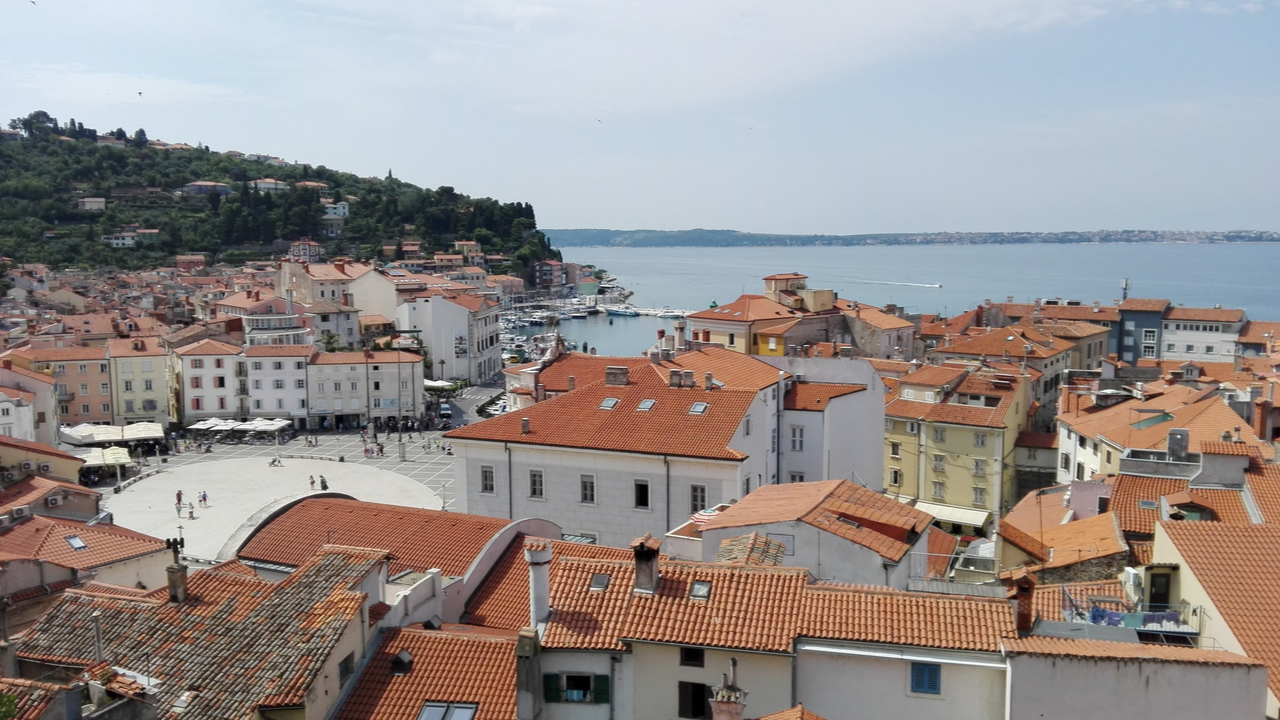 Welcome To Latam Insights Encore, a deep view of Latin America’s most relevant economic and cryptocurrency-based news last week. In this edition, we discuss the positive impact bitcoin adoption had on the growth of the tourism industry in El Salvador and how this can be applied to other countries. Bitcoin Acknowledged to Be a Catalyst […]
Welcome To Latam Insights Encore, a deep view of Latin America’s most relevant economic and cryptocurrency-based news last week. In this edition, we discuss the positive impact bitcoin adoption had on the growth of the tourism industry in El Salvador and how this can be applied to other countries. Bitcoin Acknowledged to Be a Catalyst […] Welcome to Latam Insights, a compendium of Latin America’s most relevant crypto and economic news during the last week. In this issue: The U.S. Department of State states bitcoin helped drive tourists to El Salvador, Paraguay dismisses concerns about power fee hikes for bitcoin mining activities, and Salvadoran basic goods’ prices reach record highs. US […]
Welcome to Latam Insights, a compendium of Latin America’s most relevant crypto and economic news during the last week. In this issue: The U.S. Department of State states bitcoin helped drive tourists to El Salvador, Paraguay dismisses concerns about power fee hikes for bitcoin mining activities, and Salvadoran basic goods’ prices reach record highs. US […] The U.S. Department of State has highlighted the relevance of recognizing bitcoin as a legal tender for the rebirth of tourism in El Salvador. In a recently released investment climate report, the department states that this factor has given significant publicity to El Salvador, contributing to its popularity as a tourist destination. U.S. Department of […]
The U.S. Department of State has highlighted the relevance of recognizing bitcoin as a legal tender for the rebirth of tourism in El Salvador. In a recently released investment climate report, the department states that this factor has given significant publicity to El Salvador, contributing to its popularity as a tourist destination. U.S. Department of […]

The Bank for Private Investment will “diversify the financing options” available to investors in both Dollars and Bitcoin.
El Salvador's pro-Bitcoin president Nayib Bukele is proposing the establishment of private investment banks within the nation, which if approved, will offer Bitcoin (BTC) investors access to financial services and fewer restrictions compared to traditional banks.
“As part of our economic plan for El Salvador, we propose a BPI, Bank for Private Investment, where we can diversify the financing options offered to potential investors in Dollars and Bitcoin,” the Salvadoran Ambassador to the United States Milena Mayorga wrote in a June 14 post on X.
“President Bukele hits the ground running in new term with new legislation establishing a Bitcoin Bank,” senior Bitcoin advisor to Bukele, Max Keiser, added on the same day, noting Ark Invest CEO Cathie Wood’s forecast that El Salvador’s real GDP “could scale 10-fold during the next five years” has only become “more likely.”
 Bitso, one of the largest cryptocurrency exchanges in Latam, has launched a QR payments program geared towards travelers in Argentina. The service proposal seeks to ease the way in which travelers and tourists make payments in the country, using Bitso’s interoperable QR payment technology to avoid unnecessary and often confusing cash exchange transactions in the […]
Bitso, one of the largest cryptocurrency exchanges in Latam, has launched a QR payments program geared towards travelers in Argentina. The service proposal seeks to ease the way in which travelers and tourists make payments in the country, using Bitso’s interoperable QR payment technology to avoid unnecessary and often confusing cash exchange transactions in the […] A recent poll completed by the Public Opinion University Institute, part of the Simeon Canas Centroamerican University, has found that El Salvador is still not attracted by the idea of bitcoin as legal tender. The poll results indicate that almost two-thirds of the population has a negative impression of bitcoin, with only a quarter of […]
A recent poll completed by the Public Opinion University Institute, part of the Simeon Canas Centroamerican University, has found that El Salvador is still not attracted by the idea of bitcoin as legal tender. The poll results indicate that almost two-thirds of the population has a negative impression of bitcoin, with only a quarter of […]
Multiple emirates in the UAE are looking to the metaverse to boost tourism in their respective regions. Sharjah now joins Dubai in broadening its Web3 ambitions.
Artificial intelligence ecosystem Multiverse Labs has launched a new metaverse city in the United Arab Emirates (UAE), a move the emirate said could enhance the region’s tourism industry.
The new metaverse city, dubbed Sharjahverse, was described by Multiverse Labs as a “photorealistic, physics-accurate” metaverse that encompasses the emirate’s 1,000 square-mile surface area. The virtual city will support the local tourism industry and potentially create new metaverse jobs, which aligns with efforts announced by the neighboring emirate Dubai earlier this year.
The metaverse city is backed by the Sharjah Commerce and Tourism Development Authority, or SCTDA, which is the main government agency tasked with promoting the emirate’s tourism industry. Khalid Jasim Al Midfa, SCTDA’s chairman, said the new initiative is intended to transform “the mass market tourism industry towards next-generation, sustainable practices.” As such, Sharjahverse is said to provide “unprecedented access to almost any location” in the emirate.
Although not as well known as Dubai, Sharjah is the second most populous emirate in the UAE with roughly 1.8 million people. Through Sharjahverse, the entire emirate will be viewable to the public.
In addition to growing crypto and blockchain adoption at the emirate level, there are signs that UAE's federal government is readying positive regulatory catalysts for the country. As reported by Cointelegraph in February, the UAE’s Securities and Commodities Authority is developing crypto licensing legislation that would enable digital asset firms to establish operations in the country.
Related: UAE Ministry of Economy opens up new headquarters in the Metaverse
Along with the UAE, several other jurisdictions worldwide have identified the metaverse as a potential economic catalyst. In August, Beijing’s municipal government announced a two-year metaverse innovation plan that would align the Web3 development efforts of all local districts. The South Korean government has invested hundreds of millions of dollars in various metaverse projects, while Japan’s prime minister has confirmed that metaverse technology will be part of the country’s digital transformation process.
 Nayib Bukele, the president of El Salvador, declared that the speedy recovery of tourism in the country had to do with three elements, including surfing, bitcoin, and overall crime reduction. El Salvador was one of the 15 countries that managed to take their tourism incomes to pre-pandemic numbers according to data from the World Tourism […]
Nayib Bukele, the president of El Salvador, declared that the speedy recovery of tourism in the country had to do with three elements, including surfing, bitcoin, and overall crime reduction. El Salvador was one of the 15 countries that managed to take their tourism incomes to pre-pandemic numbers according to data from the World Tourism […]
El Salvador, the first country to adopt Bitcoin as legal tender, has seen explosive growth in tourism numbers in the first half of 2022.
Tourism in El Salvador has soared in the first half of 2022. Up 82.8% just this year, there were 1.1 million visitors to El Salvador this year, according to government figures. That's despite the price of Bitcoin (BTC) sinking almost 50% since Jan. 1.
Data from the World Travel Organization reinforces the claims. The tiny Central American country is internationally recognized as “one of the countries with the best rate of tourism recovery in the region as of January 2022.”
El Salvador es reconocido internacionalmente como uno de los países con mejor ritmo de recuperación turística en la región a enero 2022.
— Ministerio de Turismo (@MITURElSalvador) March 31, 2022
Según datos de la @UNWTO, el país posee una recuperación del 81%, más información en el siguiente enlace:
https://t.co/Y9WVK1VJLe pic.twitter.com/wu7Jl25pEK
The report by the WTO states that some “Central American destinations have the best results compared to 2019,” including El Salvador at +81% compared with 2019, or pre-pandemic levels.
Contrary to reports from the Wall Street Journal that El Salvador’s bet on Bitcoin to attract tourists “hasn’t worked,” visits for the first half of this year almost outpace total visits in 2019: 1.1 million people visited the country in six months, compared to last year's total of 1.2 million.
In a radio interview, the General Director of Strategic Projects Ministry of Tourism of El Salvador, Alex Bonilla, explained that over the summer holiday period, the country can expect “57,500 international visitors, which will generate $60 million in foreign exchange during this vacation." It is expected that the 1.2 million figure mark will be beaten soon.
El Director de Proyectos Estratégicos, @alexboSV, ya se encuentra en radio @SonoraFM_sv para hablar del desempeño del turismo en estas vacaciones.
— Ministerio de Turismo (@MITURElSalvador) August 2, 2022
¡No te la pierdas por 104.5FM! pic.twitter.com/HLwVeugQK6
Since El Salvador adopted Bitcoin as legal tender, thousands of Bitcoiners have made the trip. Big-name Bitcoiners such as Jeff Booth, entrepreneur and author of Price of Tomorrow, Obi Nwosu, CEO of Fedimint the decentralized community custody solution, and Samson Mow, CEO of Jan3, have all taken pilgrimages to El Salvador.
A
— Jeff Booth (@JeffBooth) April 4, 2022
1) El Salvador has reaffirmed to me what I have learned from my travels throughout the world.
The vast majority of people in this world are beautiful people.
With similar hopes and dreams for a better life for themselves and their families, trying their best to achieve it
As Tone Vays, a Bitcoin analyst, said of his visit to El Salvador, “99.9% of the world had no clue where this country was; maybe 98% didn’t know this country ever existed–they’re [El Salvador] certainly on the map now.” Bitcoin advocates are keen to bring home exuberant tales of their trip to the land of volcanoes. At the same time, Bitcoin-centric companies are motivated to make El Salvador's Bitcoin play a success.
Max Keiser and Stacey Herbert, Bitcoin OGs, chose to take up residency in El Salvador and now base their podcasting and broadcasting operations on El Salvador. As part of the Bitcoin Bill, residency in El Salvador could effectively be bought for 3 BTC ($66,000) as part of an investment into the country.
Related: Morgan Stanley encourages investors to buy battered El Salvador eurobonds
El Salvador, known as “El Hodlador” in some circles, also hosted a bevy of central bankers in May this year. The influential group of visitors “did not discuss Bitcoin,” according to the Central Bank of Paraguay, whose delegate was a tourist in El Salvador. However, there were numerous photos of the 44 central bankers and economists using the Bitcoin Beach Wallet in El Zonte, the birthplace of BTC adoption in the country.
The capital, San Salvador, hosts the Adopting Bitcoin conference, a Lightning Summit in November this year. Over 80 Bitcoin and Lightning Network experts will take to the stage during the conference, with representatives from Blockstream, Spiral and the El Salvador government.
 The tourism organization in Portorož, a summer resort on the Adriatic coast of Slovenia, has decided to promote the destination using non-fungible tokens (NFTs). The project represents the digital component of this year’s campaign to attract visitors to the region. Tourists in Portorož to Collect NFTs and Win Prizes Shortly after the Slovenian Tourist Board […]
The tourism organization in Portorož, a summer resort on the Adriatic coast of Slovenia, has decided to promote the destination using non-fungible tokens (NFTs). The project represents the digital component of this year’s campaign to attract visitors to the region. Tourists in Portorož to Collect NFTs and Win Prizes Shortly after the Slovenian Tourist Board […]